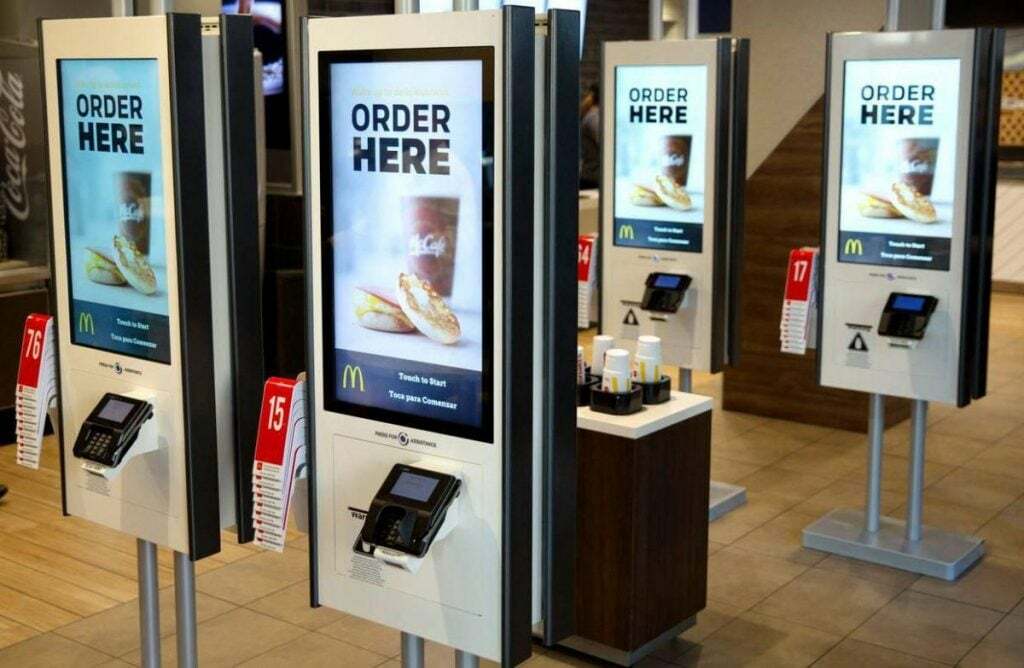We're All in Fractal Microcults
We now have an infinite number of ways to strongly disagree with someone

Imagine you own McDonald’s, except every store location is corporate-owned instead of being franchises.
Now imagine that minimum the same everywhere in the country, at $10/hour.
There is a vendor who’s been pitching you for years to move to fully AI-based ordering. The software will listen to the order, cut out the background noise, account for different dialects and accents, and will never ask someone to repeat themselves—because they have the order recorded.
We’ll assume it’s still people making the food because that could be a while.
An AI voice then asks any follow-up questions if necessary, and sends that order to the people making the food.
Let’s assume there’s some sort of conveyer belt that brings the human-made food to the customer, and a mechanism for taking the money. In other words, we’re isolating the order-taking part of the workflow.
Now, let’s say all the quants have done the math on the profit and loss of replacing all the ordering infrastructure so it can be done by the AI, which we’ll call OrderAI. The numbers have it about even. Nationally they would gain lots of necessary salaries by removing a person, but the installation and the software purchase of OrderAI would cost about the same over 10 years.
But it looks like Congress is about to pass a national $15 dollar minimum wage.
So with 20,000 stores—I’m making this up—and 100,000 employees, they’re about to lose hundreds of millions a year to payroll. Suddenly, OrderAI is an obvious choice.
Now, there are several things about this scenario that aren’t representative of reality—at least today. Humans usually do multiple things, including taking orders, handling payment, and giving people their food. And laws are different across the country, so the minimum wage equation can differ.
But what I think is super realistic is that business owners have—and will increasingly have—a choice between human workers and profits. And in that scenario, high minimum wages put humans at a massive disadvantage against the machines.
It basically accelerates the move to automation and AI.
Get a weekly breakdown of what's happening in security and tech—and why it matters.
The pandemic accelerated this push as well.
And this isn’t theory, there was just a piece about how McDonald’s and other chains are working to shave even more time off their order workflows using more automation.
This stuff is real. It’s not coming—it’s already here and accelerating. High minimum wages will push the gas even more.
And here’s the thing, it’s not like a low minimum wage is a solution. I’m not advocating for that at all. That’s bad for different reasons—most importantly that it usually isn’t enough to sustain a basic lifestyle in the US.
So I’m not saying let’s keep wages low. I’m saying significantly raising minimum wages is likely to have a different kind of adverse effect. But the situation is just starting to decline for the fast-food worker.
And many other similar industries.
Machines are getting better at doing this stuff. Humans aren’t.
Remember that vendor that was trying to sell you automation can save you X amount of money today, by spending Y, which will take Z time to realize? Well, soon they’ll be able to do it much cheaper and much faster.
Our only way out of this is to figure out how to find real, meaninfgul work that isn’t easily replaced by machines, and to migrate our society over to that as fast as possible.
And in the meantime, we should try not to rush into feel-good policy changes that accelerate the process of making human work nonviable for millions of people. It will hurt rather than help the people that are suffering.
The situation is even more nuanced because a really high minimum wage would likely pick a few winners who got that bump, at least temporarily. So it might be possible to say, for some subset of people, that raising the minimum wage did tangibly help people. But that benefit needs to be weighed against the number of people who lost their jobs to both 1) the business hiring few people due to the high wage, and 2) replacement automation that wouldn’t have been implemented yet if the automation hadn’t come.